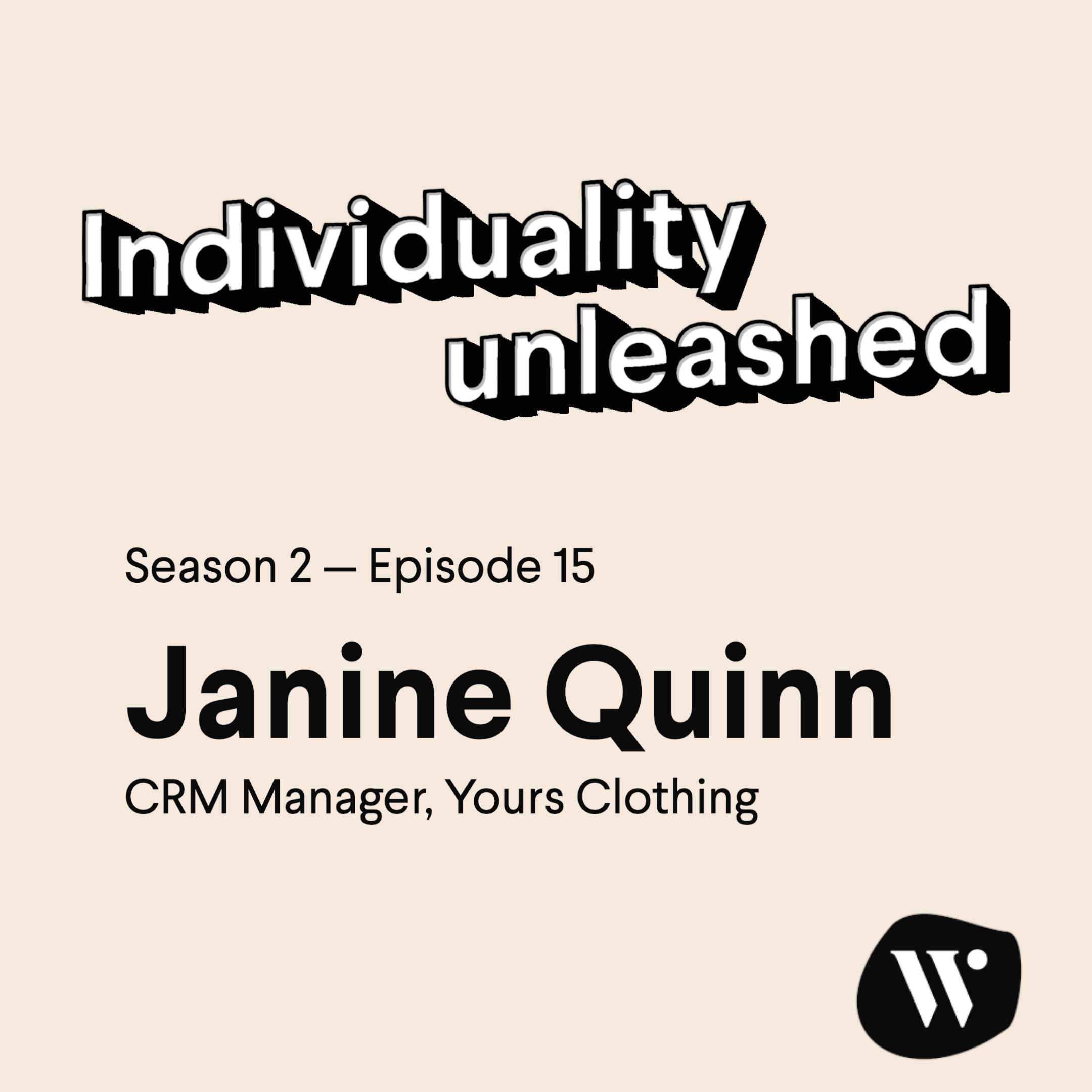Back to the Basics: The Foundations of AI
- 0.5
- 1
- 1.25
- 1.5
- 1.75
- 2
Vern Tremble: Welcome to another episode of Individuality Unleashed. My name is Vern Tremble, Senior Director of Content and Communications here at Wunderkind, where we discuss all things digital marketing, performance marketing, and artificial intelligence. Today we're joined by a special guest, Spencer Sterling, who is the Senior Director of AI and ML at Wunderkind, and he is going to be sharing so many wonderful insights around how we should be leveraging artificial intelligence in our performance marketing and digital marketing strategy. Thank you so much for joining us, Spencer. How are you doing today?
Spencer Sterling: Good, how are you doing? Thanks for having me.
Vern Tremble: Absolutely. Really good. Okay, so real quick, I'm a little nervous because there's a lot of AI and I don't know what it does. I mean, I kind of know. I use ChatGPT regularly, and then we use a few tools, but I think I don't really know or understand how artificial intelligence work, especially this new iteration of AI. So I'm really excited to chat with you today, Spencer, to figure out exactly what AI is, how can marketers leverage AI ultimately to help them improve their efficiencies, but ultimately to create a foundational understanding of what AI, ML, generative AI, and all those things related to artificial intelligence are. And hopefully you can tell us exactly what we should be looking at.
Spencer Sterling: Sure, yeah. Yeah. So it's a complicated question actually, because AI, it's funny because I don't think anybody knows how to define AI, really. The definition just keeps changing as time goes on. But I think nowadays, I think most people would think of AI as essentially sort of more human related tasks, things like vision, text generation, reading of text, these large language models, processing audio, generating audio, so things that you would definitely need a human to do. Whereas I think that in the old days it was AI and ML were kind of synonymous, and ML has now become processing of structured data. So I would think of ML as anytime you need to do some mathematics or you need to make a mathematical prediction, you need to make a decision, you need to process structured data and come up with some number or probability of somebody who's going to churn, that is definitely more in the realm of ML. Whereas AI is now this sort of text, images, audio, what can we do with that unstructured data?
Vern Tremble: Got it. So there are two buckets from what I'm hearing, and possibly two schools of thoughts. So as marketers are looking at AI tools, it's fair to say that they really should be looking at it from a utility and outcomes perspective. Is that right?
Spencer Sterling: A hundred percent. I am fully on board with practical ML and practical AI. I think we're in a weird time where everybody suddenly has this new and obviously very powerful tool, and so there's a lot of thinking around, " I have this hammer, can I find a bunch of nails?" And I think that we need to step back a little bit and be very practical about it and say, use case first. What are we trying to accomplish? What is our business goal here? Does AI fit into this business goal? Does ML fit into this business goal? So I think that that's the approach that most businesses or every business should be taking at this time.
Vern Tremble: Awesome. So Spencer, what makes good AI?
Spencer Sterling: Again, I think it's all about AI and ML serving the use case rather than the other way around. So some of the worst projects I've ever seen in ML or in engineering have been when somebody gets excited about a tool and then they sort of contrive a use case because they want to use that tool. And you'll see that a lot in many, many companies. But if we can stay very disciplined about that and say, forget that, let's just worry about the use case and just see where AI fits, and is this appropriate for this use case? I think that that is the key to success.
Vern Tremble: Just sorry to interrupt. I was just going to say that's really good because I've spoken to a lot of marketers who are looking at AI tools that are trying to onboard and implement them, and even those that do spend a ton of money and spend a few months with these new AI tools and they're complete garbage. They don't deliver that which they thought it would. But then they also realize once they've implemented the AI tool, they weren't necessarily clear on what the outcomes were. What were they trying to achieve with that AI tool other than hitting a bunch of nails with a very expensive hammer?
Spencer Sterling: I think that that's absolutely true. I think that we're going to see a lot of... There's a lot FOMO right now, so I think that everybody's running into it, and that's not necessarily a bad thing. I think that folks do need to know what are these capabilities, keep it in our minds, what possible use cases can we fulfill with this, but stay disciplined. I mean, I would say most companies that I've walked into, actually, they're not even doing that much ML. And so ML is a tried and true basket of techniques for improving your business. Anything from optimizing recommendation engines, optimizing spend, predicting LTV, these kinds of things are still, I think the bread and butter of most businesses and most businesses aren't actually doing everything that they can there. So I would recommend most businesses invest in ML first, and then if you are thinking about you have a very mature ML presence, I think then's the time to start thinking, what can we do with generative AI? Now, that doesn't mean that you shouldn't invest at all. I think it's okay to invest a little bit. I think it's okay to demo a few things, POC a few things, but maybe not spend your entire budget on it and maybe not put all your eggs in that basket at this time.
Vern Tremble: It's so easy to do.
Spencer Sterling: It is.
Vern Tremble: Everyone is looking for, let's see, the goose that lay the golden egg and potentially AI is that tool, but it really is, as you said, the AI and your AI strategy is truly only as good as your internal data. Is that fair?
Spencer Sterling: 100%. I think that that hits the nail on the head to use the same analogy you were using before, hammers and nails. So I think-
Vern Tremble: I want to build a house after this.
Spencer Sterling: That's right. So yeah, I mean, at the fundamental level, if you don't have good data, then AI's not going to help you. If you don't have a good strategy, AI's not going to help you. So it's a funny world because I get emails and calls all the time now from former colleagues, from friends, and they're saying, " This is so powerful. I want to build a business. Can we brainstorm?" I'm like, " Okay, what's your business idea?" And they don't even have the business idea yet. They just want to do AI. And I'm like that's not the way to approach business. So I think that we're obviously still climbing up in the hype curve. We're going to go through that trough of disillusionment in another year or two. But I do think it is a powerful technology and there are good use cases for it. So it's still worth investing in. I think there needs to be some caution there.
Vern Tremble: Indeed, the way it is not. So what is the way, how should marketers be looking at AI today? What's the best way that marketers can approach researching AI tools, implementing AI tools, and what should be some general metrics of success?
Spencer Sterling: Yeah, I think that number one, I think that there needs to be a very solid conversation between marketers and the technical people who are going to implement it, because some things may or may not be possible at the end of the day. If you're sitting on a gold mine of data, it may not be a good idea to go out and buy a product and then try to integrate with that. You may end up either giving away your golden goose there, or you may just have a hard time integrating with it. So I think that it's just important to keep a good solid conversation going between the engineering teams and the marketing teams and the ML folks and the AI folks to make sure that what you're doing makes sense. Also, it turns out, I think that a lot of these things could be built in- house for cheaper just because of the same issues. So integration problems, just a scale of data like moving the amount of data that Wunderkind moves around would be impossible. We would never be able to offload that to another company. So it makes a lot of sense to stay levelheaded and sober in those decisions. But other than that, I see no problem with folks investigating tools and what other companies are doing. That's absolutely what people should be doing. We should be looking at what other companies are doing, and if it is a use case that where you believe somebody else has done this better and you could just buy it, maybe that makes sense. A good example of this is in the past, I used to work in video games a lot, and we had a project that was anti toxicity, and there were a lot of questions, should we build or should we buy? And frankly, it wasn't a lot of data to transfer, and I knew that another company could do it better than we could, and so I just said, " Let's just buy this product." And so we did. But in other cases, I would strongly say, no, we can build this in- house for cheaper and it probably would be better because we'll be using our own data with it.
Vern Tremble: Yeah, that's a tricky dance to be able to make that decision.
Spencer Sterling: It is.
Vern Tremble: Yeah, and it's one that's so relevant now because that the case where we have access now to so many wonderfully powerful tools, or at least the ability to kind of cobble together our own tools to deliver the needs for the business that we are essentially trying to create. But in some instances, it may be more beneficial to look at tools and partners that have a cache of data that will allow you to produce the type of results that you need in order to drive improved business results. Is that fair?
Spencer Sterling: Absolutely. I mean, companies like, well, Wunderkind for example, we're sitting on 10 years of data that's just not going to be possible for a company to come in and replicate easily. We have a huge addressable audience. We know a lot about them, and we've been doing it for many years. So I think that it's those sorts of situations where, like I said before, where another company can do it better than you, then it does make a lot of sense to partner with that company.
Vern Tremble: That makes a lot of sense. Spencer, you've been an absolute wealth of knowledge and your knowledge extends not only in the form of this podcast, Jay's going to add a wink sound after in post, I'm a Ham, we've also just released a brand new white paper entitled Revolutionizing Retail, How to Navigate the AI Landscape to Drive Performance. This is a phenomenal piece of content that's been produced by the Wunderkind team. We spent hours interviewing Spencer and other thought leaders in this space aiming to bring you relevant content information, best practices around artificial intelligence and how to leverage artificial intelligence around brand and performance. So please, you can check that out by going to www. wunderkind. co and clicking the resource section, and please download that and check it out and get more information. And we also like to extend an invitation to join us again for another episode where we go round two with Spencer to talk more about AI and performance marketing and how to leverage AI to drive more valuable outcomes for your business. Spencer, it's been an absolute pleasure sitting down chatting with you today. Do you have any final words that you want to leave our viewers and listeners?
Spencer Sterling: No, I think that's it. I really appreciate the opportunity to talk to you, Vern.
Vern Tremble: I hope you're enjoying this content around artificial intelligence. The next episode of Individuality Unleashed, we sit down with the president of Ometria to discuss how they're leveraging AI in their strategy.
DESCRIPTION
Tune into another episode of Individuality Unleashed where we sat down with Spencer Stirling, PhD, Senior Director of AI & ML at Wunderkind, to talk through all things AI! We discussed the foundations of AI and how marketers can and should leverage it to drive performance.







